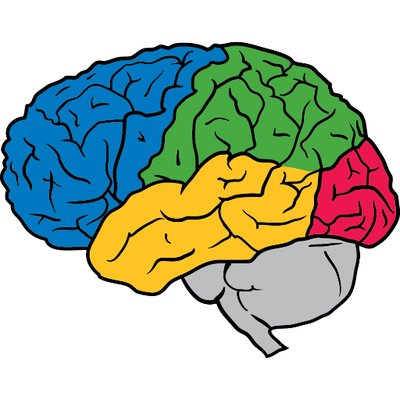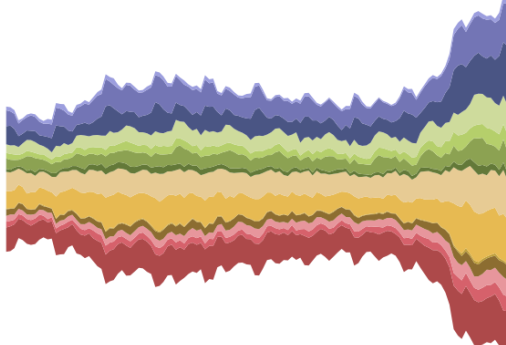
Tag: algorithm
Feeding the Virtuous Cycle of Discovery: HPC, Big Data, and AI Acceleration
GenAI hit the scene fast and furious when ChatGPT was released on November 30, 2022. The quest for bigger and better models has changed the hardware, data center, and power landscape and foundational models are still u Read more…
Algorithm Gets the Blame for COVID-19 Vaccine Snafu
Managers at Stanford Medical Center blamed an algorithm for their decision not to give the COVID-19 vaccination to 1,300 residents and fellows working as frontline physicians in the hospital, much to the displeasure of t Read more…
Data Science Platforms As a New Force Multiplier
Models matter. Companies that are able to build their businesses around meaningful models generate competitive advantage through better understanding the needs of their customers, their business model, and their ability Read more…
What is Feature Engineering and Why Does It Need To Be Automated?
Artificial intelligence is becoming more ubiquitous and necessary these days. From preventing fraud, real-time anomaly detection to predicting customer churn, enterprise customers are finding new applications of machine Read more…
AI Can See. Can We Teach It To Feel?
We've made great strides in the field of computer vision, to the point where self-driving cars equipped with artificial intelligence (AI) can effectively "see" their surroundings. But can we teach AI to "feel" something Read more…
Deep Learning, PET Scans Combined to Spot Alzheimer’s
Early detection remains among the keys to diagnosing and treating debilitating and fatal diseases. Clinicians are now enlisting machine learning algorithms to greatly accelerate detection of early-stage Alzheimer’s dis Read more…
Anodot Gains Patents for Anomaly Detection
Anodot, which focuses on using machine learning techniques to spot anomalies in time-series data, announced a pair of U.S. patent awards this week covering its autonomous analytics framework. The analytics vendor said Read more…
Three Ways Biased Data Can Ruin Your ML Models
Machine learning provides a powerful way to automate decision making, but the algorithms don't always get it right. When things go wrong, it's often the machine learning model that gets the blame. But more often than not Read more…
Algorithmia Aims AI Layer at ‘Last Mile’ Problem
It has been asserted that the algorithm has overtaken traditional software code as the driving force behind the AI Era. On the assumption that assertion is accurate, startups are beginning to offer tools for building wha Read more…
Sparse Fourier Transform Gives Stream Processing a Lifeline from the Coming Data Deluge
When James Cooley and John Tukey introduced the Fast Fourier transform in 1965, it revolutionized signal processing and set us on course to an array of technological breakthroughs. But today's overwhelming data sets requ Read more…
Under Contract: Crowd-Sourced Zillow Algorithm
Zillow, the home sales tracking web site, has transformed the real estate business, but its proprietary algorithm for estimating home values hasn't always measured up. In tacit acknowledgment of that shortfall, the Se Read more…
Biomedical Text Mining Tool Gets the Lead Out
Approximately 100 lines of Python code serve as the basis of a new predictive text-mining tool designed to accelerate the scanning online biomedical research papers for clues on everything from repurposing existing drugs Read more…
Health Tracker Said to Spot Ebola Outbreak Before WHO
HealthMap, a web-based utility and algorithm used by public health agencies and others to track disease outbreaks and deliver real-time intelligence about emerging infectious diseases, may have spotted the Ebola outbreak Read more…
Google’s Flu Analytics Fail Highlights Big Data’s Shortcomings
Big data has enormous potential for assisting public health efforts, but without sufficient context, numbers can be misleading. Read more…
Will Your Startup Succeed? Ask an Algorithm
As futurist Arthur C. Clark once posited: Any sufficiently advanced technology is indistinguishable from magic. The predictive patterns have always been there, but it's only with the evolution of technology and the advent of big data tools in particular that data scientists are able to predict future circumstances with what can seem like uncanny success. Read more…
Big Algorithms to Change the World
The age of information has arrived. Bits and bytes zip through the atmosphere into our homes and buildings, into our televisions and into our mobile devices. Our automobiles, trains, planes, and thoroughfares are Internet-connected. Even our parking spaces have apps. The human race has amassed more data in the past two years than in all of the rest of history combined. However, as a fascinating article in the Harvard Magazine points out, it's not the quantity of data that's most impressive. Read more…
Customizing the Internet, One User at a Time
You've no doubt heard the statistic that a full 90 percent of all the data in the world has been generated in the last two years. In 2012, humans created 2.5 quintillion bytes of data every day. Every minute of every hour, Google's servers process more than 2 million search queries, Facebook scans 3.5 terabytes of data, and some 277,000 tweets are sent. The global Internet population now represents 2.1 billion people all contributing to the ever-widening digital footprint. Read more…
Amazon and the Anticipatory Web
To learn more about the launch of Amazon's "anticipatory shipping" functionality, I went to Google, which knows more about me than I care to admit. As I started typing in the words "Amazon anticipa…" Google already knew what I was looking for: "The Anticipatory Corpse," a book from University of Notre Dame Press about the demise of dying in America. Read more…
Analytics Power Solar Energy Boost
While solar energy pioneers are still seeking ways to tweak the price performance issue, others are focusing on less obvious potential solutions. One such group of solar cell researchers at MIT is addressing the problem of current solar technolo.... Read more…









































